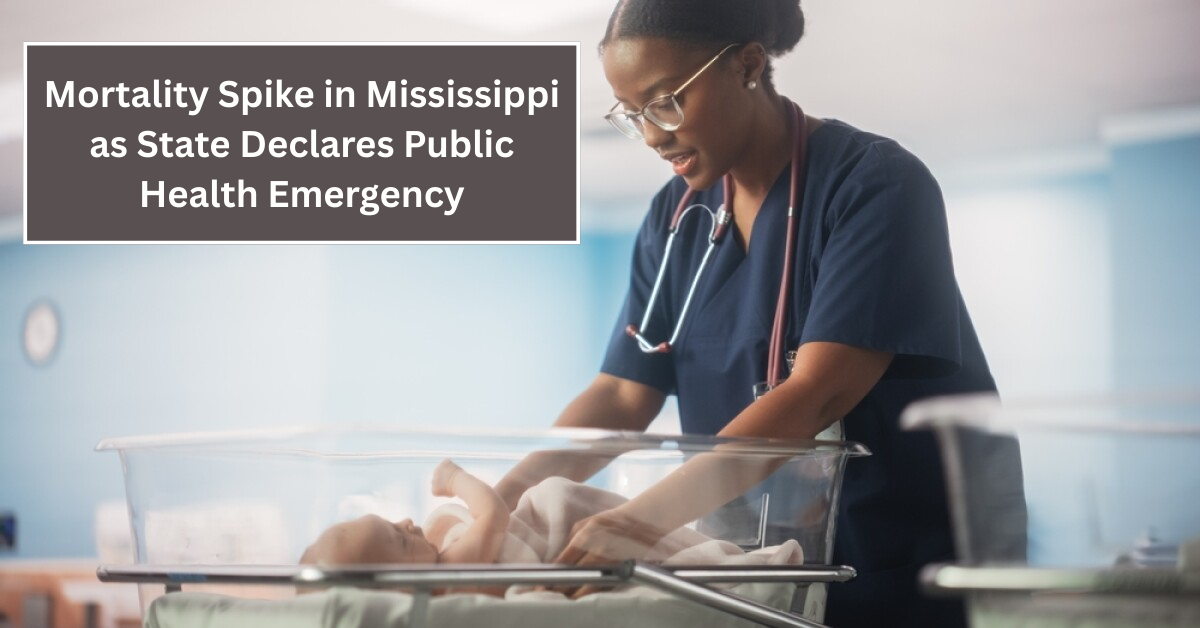The state of Mississippi is facing a grave public health crisis as experts report a sharp and alarming increase in infant mortality rates. This disturbing trend has captured national attention, prompting the state government to declare a public health emergency in an effort to address and reverse these devastating outcomes. The rising death rates among newborns and infants call for immediate action from healthcare providers, policymakers, and community leaders alike.
Mississippi’s surge in infant deaths shines a spotlight on long-standing health disparities, inadequate access to maternal care, and systemic challenges within the healthcare infrastructure. As families grapple with heartbreaking losses, state officials are mobilizing resources and initiatives aimed at improving prenatal care, expanding education, and reducing preventable causes to safeguard the lives of the youngest and most vulnerable.
Understanding the Scope of the Infant Mortality Crisis in Mississippi
Infant mortality refers to the death of a child before reaching one year of age, a critical indicator of a region’s overall health conditions and access to healthcare. Across Mississippi, recent statistics show a sharp upward trend in infant deaths, raising serious concerns among health experts and community advocates. The rate now surpasses national averages by a significant margin, underscoring persistent inequalities and the need for urgent intervention.
Historically, Mississippi has struggled with some of the highest infant mortality rates in the nation, but the current surge marks a disturbing new chapter. This increase is attributed to various factors, including poor prenatal care accessibility, higher rates of low birthweight and premature births, socioeconomic challenges, and limited healthcare infrastructure, especially in rural areas.
Key Factors Behind the Rise in Infant Mortality
Health experts have identified several key contributors to the increasing infant mortality rate in Mississippi. Lack of access to quality prenatal and postnatal care plays a significant role. Many families, especially in low-income and rural communities, face barriers such as transportation difficulties, insufficient healthcare facilities, and shortages of care providers.
Additional factors include high rates of maternal health issues such as diabetes, hypertension, and substance use disorders, all of which increase risks during pregnancy and birth. Environmental and social determinants like poverty, education level, nutrition, and housing conditions further exacerbate the problem, creating complex challenges that require multifaceted solutions.
Infant Mortality Rates Compared to National Averages
| Region | Infant Mortality Rate (deaths per 1,000 live births) |
|---|---|
| Mississippi | Higher than national average by a significant margin |
| National Average (United States) | Lower compared to Mississippi, reflecting better overall health outcomes |
This table highlights how Mississippi’s infant mortality rate continues to lag behind the broader United States rate, reinforcing the urgent need for systemic change to bridge this gap.
State Response: Declaring a Public Health Emergency
In light of this alarming surge, Mississippi state officials officially declared a public health emergency focused on infant mortality. This declaration allows for the mobilization of funds, resources, and collaboration across state departments, healthcare systems, and community organizations. It signals a commitment to prioritizing infant health and maternal care as a crucial public health issue.
The emergency declaration enables targeted interventions, including expanded prenatal programs, increased healthcare access for underserved communities, and enhanced data tracking to monitor progress. Additionally, public awareness campaigns aim to educate families about the importance of prenatal care, nutrition, and safe sleep environments for infants.
Programs and Initiatives Underway to Combat Infant Mortality
Mississippi is deploying several programs designed to tackle the root causes of infant mortality. These initiatives prioritize improving access to quality prenatal and postnatal care, particularly for high-risk populations. Mobile health clinics and telehealth services are being expanded to reach rural and underserved areas.
Efforts also include collaboration with community-based organizations to provide education on substance abuse prevention, maternal mental health support, infant nutrition, and safe sleep practices. Home visitation programs place trained nurses and doulas in homes to support new mothers, ensuring early intervention and guidance throughout pregnancy and infancy.
The Role of Social Determinants in Infant Mortality Rates
Beyond medical and healthcare considerations, social determinants such as poverty, education, housing instability, and food insecurity heavily influence infant mortality outcomes. Mississippi faces challenges related to widespread poverty and limited educational opportunities that create unhealthy environments for mothers and babies.
Addressing these broader social issues is critical for sustainable improvement. Stakeholders are emphasizing cross-sector partnerships that bring together health, education, housing, and social service agencies to design comprehensive strategies aimed at lifting families out of cycles of disadvantage and improving infant health over the long term.
How Mississippi’s Young Families Are Affected
The infant mortality crisis deeply impacts young families, many of whom live with increased anxiety and uncertainty regarding their infants’ futures. Losing a child or facing health complications early on has profound emotional, financial, and social repercussions. For young parents balancing education, work, and caregiving, these challenges can feel overwhelming without adequate support.
Efforts to provide accessible mental health resources and parental education programs are crucial parts of providing relief and empowering young families. Creating networks of support and ensuring equitable access to services aim to create healthier beginnings for Mississippi’s children.
Looking Ahead: Challenges and Opportunities for Improvement
While the surge in infant mortality represents a critical challenge, it also presents opportunities for renewed focus, innovation, and collaborative action. Success will depend on sustained investment in healthcare infrastructure, targeting social determinants of health, and ongoing engagement with communities most affected by these outcomes.
Advances in data collection and monitoring will help track progress and identify areas requiring intensified intervention. Engaging younger generations through education and awareness campaigns can foster a culture of health and prevention, ultimately helping to reduce infant deaths over time.
What Can Individuals Do to Help Prevent Infant Mortality
Younger readers and families can play a role in combating infant mortality by spreading awareness about prenatal care’s importance and advocating for policies that expand healthcare access. Supporting local organizations working with expectant mothers and participating in educational workshops are meaningful ways to contribute.
Additionally, promoting safe infant sleep environments, proper nutrition, and early health screenings encourages healthier starts for babies. Empowered and informed communities stand stronger in protecting infant lives and creating brighter futures for Mississippi’s youngest citizens.
Final Thoughts on Mississippi’s Infant Mortality Crisis
The declaration of a public health emergency in Mississippi underscores the urgency of addressing the state’s growing infant mortality rates. Tackling this issue requires comprehensive, community-driven approaches that improve healthcare access, address social inequities, and offer support to families throughout pregnancy and infancy.
With coordinated efforts from health officials, policymakers, healthcare providers, and citizens, Mississippi can turn the tide on this crisis. Protecting and nurturing the health of infants today is essential for building a healthier, more prosperous future for all Mississippians.




